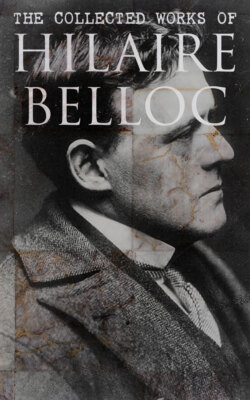Читать книгу The Collected Works of Hilaire Belloc - Hilaire Belloc - Страница 34
На сайте Литреса книга снята с продажи.
LA FAYETTE
ОглавлениеThe character of La Fayette has suffered chiefly from his own aloofness towards his contemporaries on the one hand, and from his rigid adherence to principle upon the other. Both these causes are clearly connected. The same quality in him which made him so tenacious of principle made him contemptuous of the run of men about him. Fundamentally, he was nearer the extreme Republicans than any other class, from the very fact of his possessing a clear political creed and a determination to follow it out to its logical consequence. But there was no chance of his comprehending the concrete side of the movement or the men engaged upon it, for his great wealth, inherited in very early life, had cut him off from experience. His moral fault was undoubtedly ambition. It was an ambition which worked in the void, as it were, and never measured itself with other men's capacities or opportunities. He made no plans for advancement, not because he would have despised the use of intrigue in reason, but because he was incapable of working it. He was exceedingly attached to popularity, when it came he thought it his due; unpopularity in its turn seemed to him a proof of the vileness of those who despised him. He made himself too much the measure of his world.
Undoubtedly a very great part in the moulding of his character proceeded from his experience in the United States of America. He was then at the most impressionable and formative period of human life, little more than a boy, or at least just entering early manhood. He had just married, he had just come into the administration of his vast fortune. At such a moment he took part in the victorious rebellion of the English colonies, and it may be imagined how powerful was the effect of this youthful vision upon the whole of the man's future life; because there was no proletariat in the colonies, he never saw or comprehended the dispossessed classes of Paris—for that matter he never saw or comprehended the French peasantry upon his own lands; because a chance and volunteer soldiery had, under the peculiar conditions of the half-populated Atlantic seaboard in conjunction with the French fleet and with the aid of French money and arms, got the better of the small and heterogeneous forces of George III, he believed that a military nation like the French, in the midst of powerful enemies, could make something of an amateur civic force; because a certain type of ease in social relations was the ideal of many, perhaps of most, of those with whom he had served in America, he confused so simple and mundane an ideal with the fierce crusading blast and the sacred passion for equality which was stirring his own nation when his opportunity for leadership came.
It may be said of La Fayette with justice that he never upon a single occasion did the right thing. It may also be said with justice that he never did politically any major thing for which his own conscience would later reproach him. It is noticeable that the Queen held him in particular odium. He had been a wealthy young noble about the Court, the friend of all her women friends, and his sympathy with the revolutionary movement at its inception therefore seemed to her nothing better than treason. There was also undoubtedly something in his manner which grievously repelled her; that it was self-sufficient we cannot doubt, and that it was often futile and therefore exasperating to women, events are sufficient to show. But Marie Antoinette's violent personal antagonism towards La Fayette was not common, though several ardent spirits (Danton's, for instance) shared it. The mass of those who came across La Fayette felt in connection with him a certain irritation or a certain contempt or a certain rather small and distant respect; he inspired no enthusiasms, and when he timidly attempted a rebellion against the new Government after the fall of the monarchy, no one would sacrifice himself or follow him.
It may be affirmed of La Fayette that if he had not existed the Revolution would have pursued much the same course as it did, with this exception: that there would not have been formed a definitely middle class armed guard to provoke friction in Paris: the National Guard would have been more open to all ranks.
In religion the man was anodyne, Catholic of course by baptism, but distinctly Protestant in morals and in general tone, in dogma (until the end of his life) freethinking, of course, like all his contemporaries. He was personally courageous but foolishly despised the duel. One anecdote out of many will help to fix his nature in the mind of the reader. Mirabeau, casting about as usual for aid in his indebtedness, sent urgently to him as to a fellow noble, a fellow politician and a fellow supporter of the Crown, begging a loan of £2000. La Fayette accorded him £1000.
